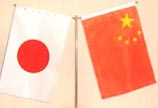Japan back on Chinese tourists' itineraries
By Wang Wen (China Daily) Updated: 2014-03-01 11:41There has been a rapid recovery in the figures in recent months, showing the effects of the disputes is fading, said Jiang Yiyi, director of the China Tourism Academy's International Tourism Development Institute.
Relations became strained following Japan's illegal "purchase" of China's Diaoyu Islands in September 2012.
|
 |
Jiang said, "Chinese residents accept Japan as a destination again", adding that a weak yen and a relaxation in visa policies helped to attract Chinese tourists.
"If the two countries are not embroiled in further dramatic political events, Chinese tourism to Japan will recover gradually this year," Jiang said.
She said she expects the number of Chinese tourists to Japan to return to levels before the territorial disputes erupted.
In 2012, 1.43 million Chinese visited Japan, but the number dropped to 980,000 last year.
Yang Dong, director of the Japan and South Korea region for Ctrip.com International's tourism department, said repressed demand from Chinese who scrapped travel plans to Japan amid the political tension may be unleashed this year.
Liu Xi, a 29-year-old Beijing resident, went on a seven-day trip to Japan during Spring Festival in February.
She said she was a little worried about Japanese people's attitude toward Chinese because of the territorial disputes, but most Japanese turned out to be friendly.
All Nippon Airways, which runs more than 50 daily flights between Japan and 10 Chinese destinations, changed some of its flights to China to be operated by single-aisle aircraft when passenger numbers fell sharply in late 2012.
But all its China flights are now being operated by wide-bodied planes again, said Atsushi Yabuki, sales and administration director at the carrier's regional headquarters for China.
"The average load factor on our China-Japan routes is about 70 percent now, although Japanese passenger numbers are still low," he said.
The airline also expects to expand its network in China and will keep applying for more flights between Beijing, Shanghai and Tokyo, he said.
- Japan must act responsibly on 'comfort women': China
- China wants explanation of Japan nuclear stockpile
- Japan's relaxation of arms exports harms peace
- Japan's wartime aggression photos unveiled in Seoul
- China urges Japan to reflect on war responsibility
- Dates Japan cannot deny
- China slams Japan over controversial moves
- China grills Japan on nuclear policies
- Japan releases Chinese fishing boat
- More female officials caught in corruption
- Whampoa veterans recorded with glory
- Police bust 9 terrorist groups in Xinjiang
- Knife-wielding attackers seized in Xinjiang
- New regulation leads to drop in petitioned cases
- Hunan plant shut as probe into lead poisoning begins
- Police boost efforts to combat gambling
- Project offers jobs openings to legal experts
- Experts: Dog meat festival 'illegal'
- Nation looks to upgrade
pipeline networks






